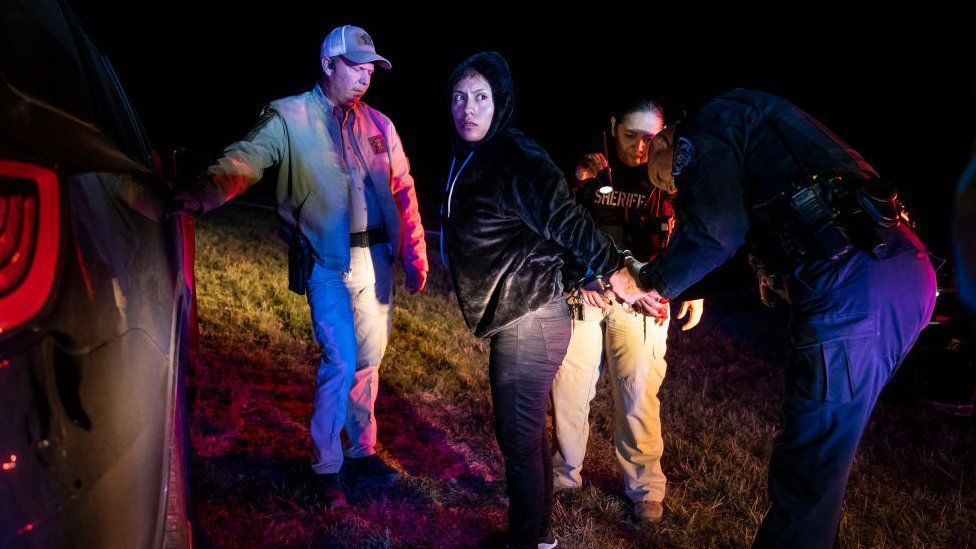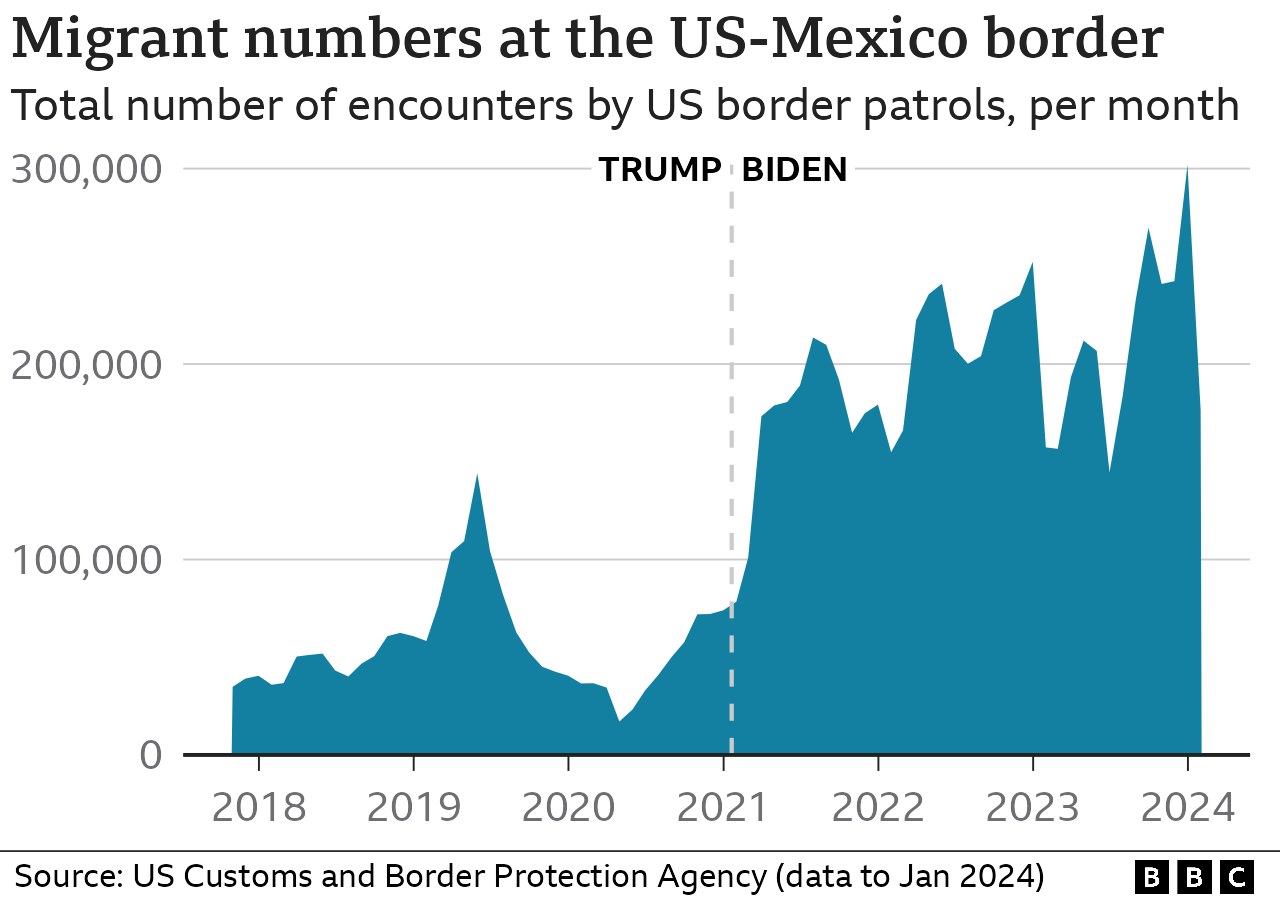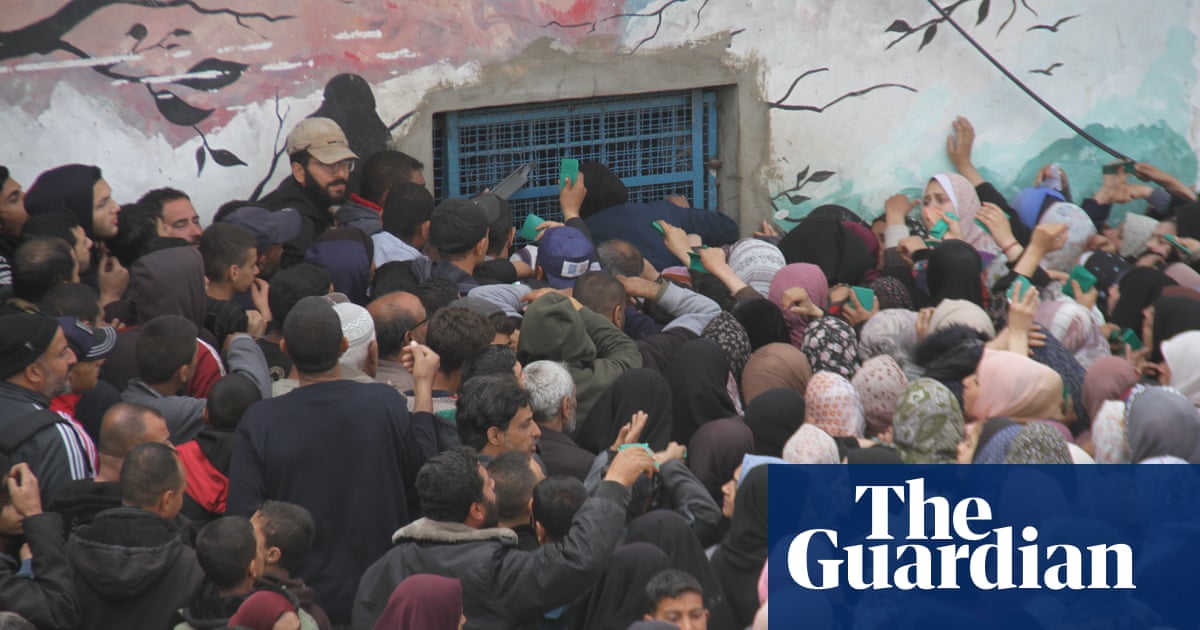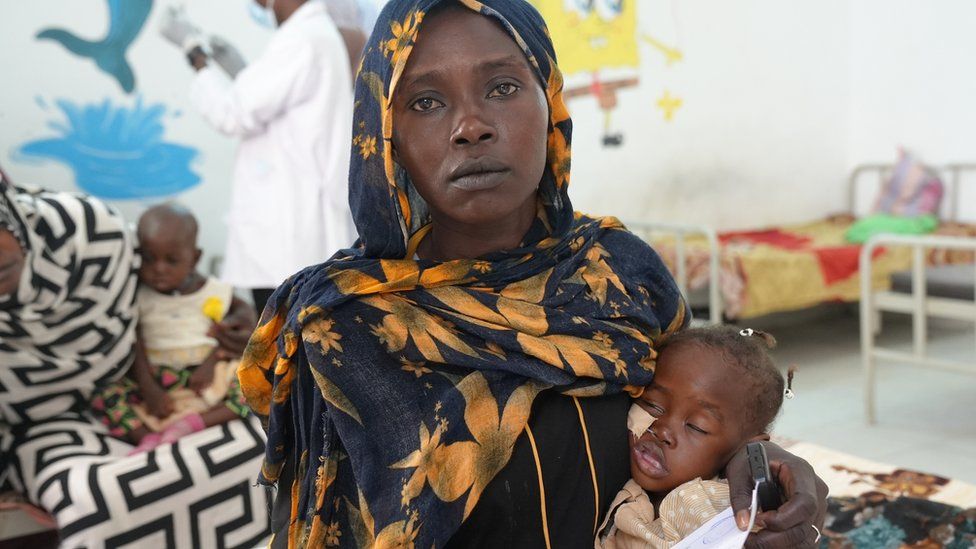
Civilians caught up in Sudan's civil war have given graphic accounts to the BBC of rape, ethnic violence and street executions. Our journalists have managed to make it to the front line of the fighting close to the capital, Khartoum.
Top UN officials have said the conflict has plunged the country into "one of the worst humanitarian nightmares in recent history" and could trigger the world's largest hunger crisis.
There are also fears that in Darfur, in the west of the country, a repeat of what the US called genocide 20 years ago may be beginning to unfold.

WARNING: This article contains accounts of physical and sexual violence
As if out of nowhere, a huge blast shakes the road in Omdurman. People scream and run in all directions, shouting: "Go back, go back, there'll be another one." Thick smoke blankets everything.
Moments earlier, the battered street had been dotted with pedestrians picking up rice, bread and vegetables from the shops, which had only recently begun to re-open.
In mid-February, the Sudanese army retook the city - one of three along the River Nile that form Sudan's wider capital, Khartoum.
Civilians have now started to return, but mortars, like the one that landed in the middle of this main street, still fall daily.
For international media, gaining access to cover the civil war that erupted last April has been difficult - but the BBC has managed to get to the front line.
Our team found the once-bustling heart of Omdurman transformed into a thinly inhabited wasteland.
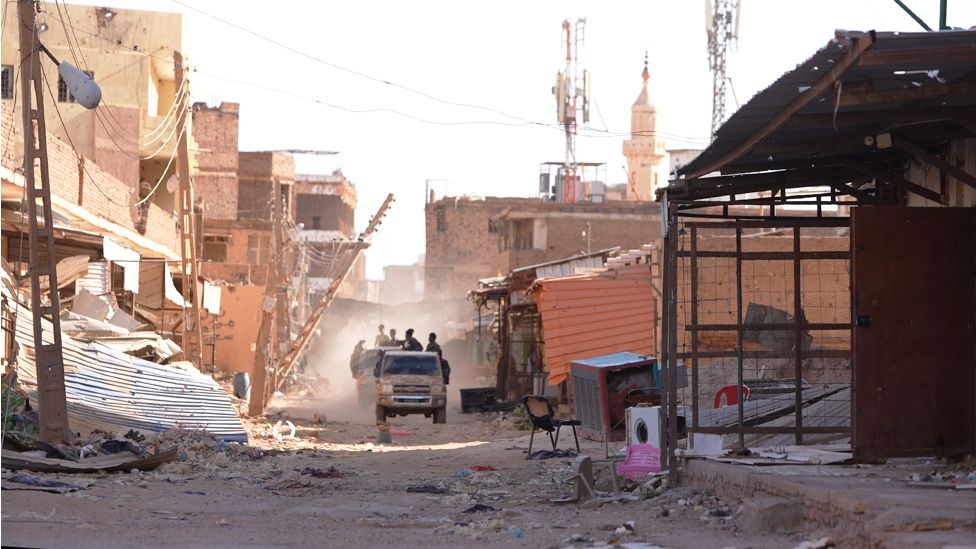
The vicious power struggle between the country's military and its former ally, the Rapid Support Forces (RSF) paramilitary group, has killed at least 14,000 people across the country - possibly many more.
For nearly a year, the army and the RSF have battled over Khartoum and the nearby cities.
The RSF has taken control of areas south of the capital, as well as large swathes of Darfur, which has been in turmoil for years with violence between its various African and Arab communities.
Women who escaped Darfur to neighbouring Chad have given the BBC accounts of being raped - sometimes multiple times - by militiamen. Men in the camps told us they had escaped street executions and abductions.
Embedded on the front line with the army in Omdurman, the BBC team's movements were carefully controlled - we had a minder with us and were not allowed to film military activity.
The army fears information about its activities will be leaked.
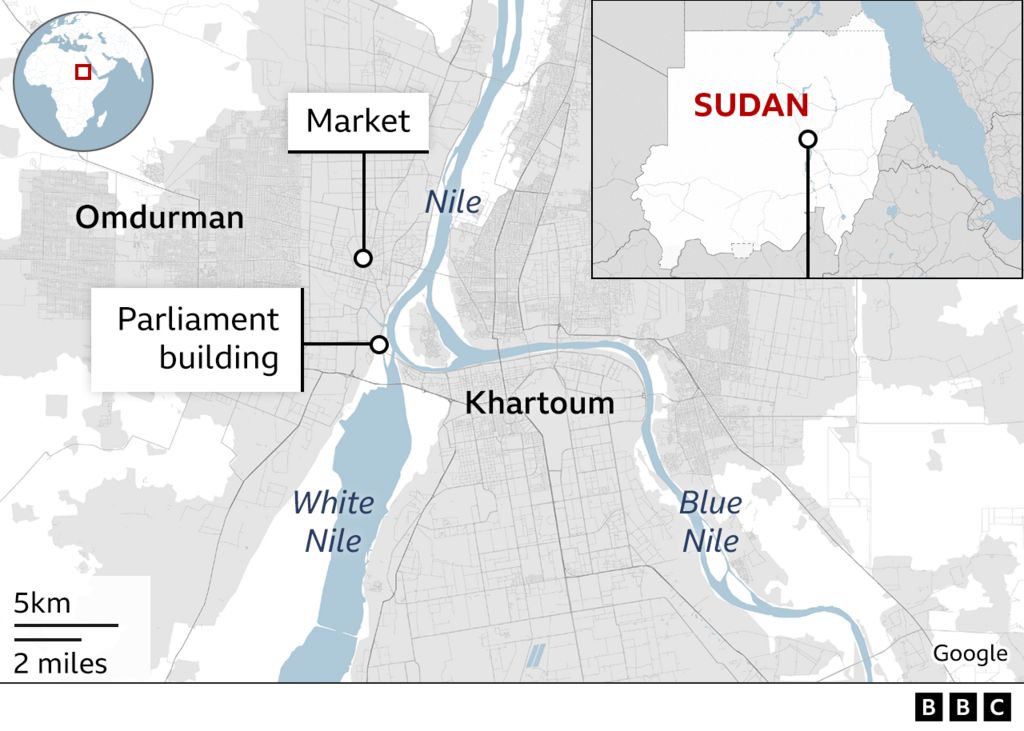
When our cameraman begins filming the aftermath of the mortar explosion, armed men in civilian clothing surround him, one pointing a gun at his head.
They turn out to be from military intelligence, but it's a sign of how high tensions are.
Despite the army's recent gain in Omdurman, we can still hear exchanges of fire crackling around the area from time to time.
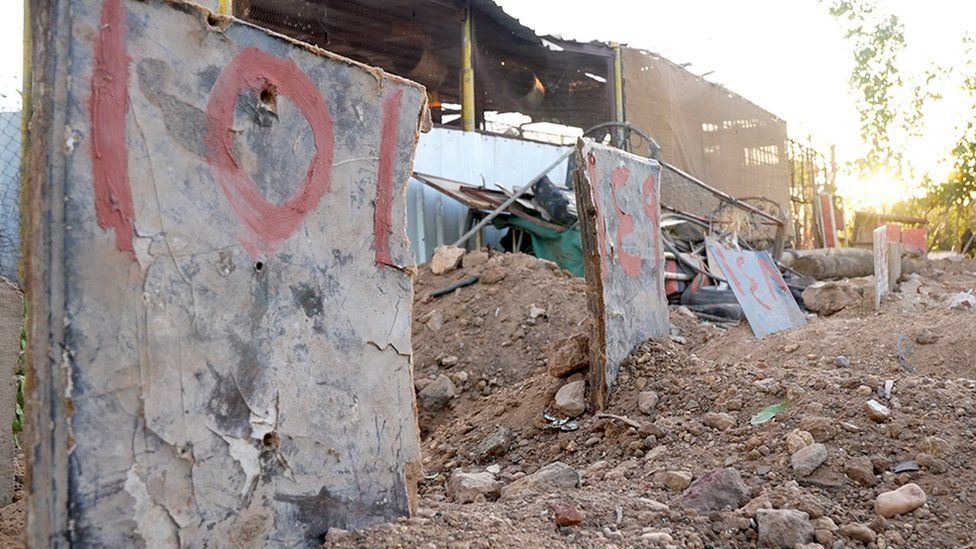
Part of the front line now runs along the Nile, which separates Khartoum on the eastern side from Omdurman, which is west of the river.
The military tell us RSF snipers are stationed in apartment blocks across the water from Sudanese army positions at the badly damaged parliament building.
Omdurman's old market, once busy with locals and visitors, is in ruins, its shops looted bare. Most vehicles on the roads are military.
More than three million people have fled Khartoum State in the past 11 months, but some Omdurman residents have refused to leave. Most we meet are elderly.
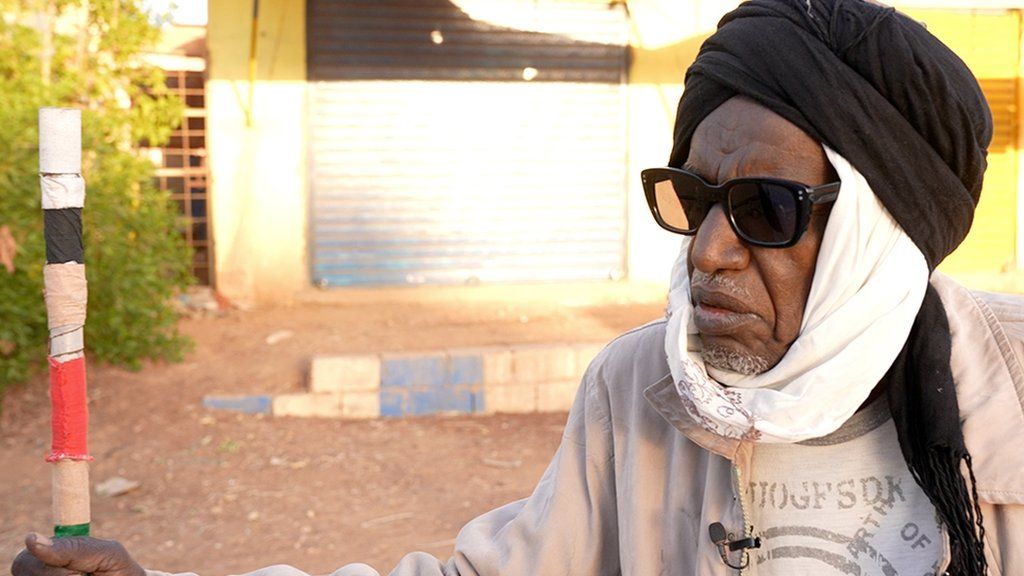
Less than a kilometre from the front line, Mukhtar al-Badri Mohieddin is walking with a stick near a mosque with a damaged minaret.
The open space opposite is covered with makeshift graves - rough earth mounds marked with broken bricks, boards and concrete slabs.
"There are 150 people here. I knew many of them, Mohamed, Abdullah… Jalal," he says, pausing for a long moment before one name, Dr Youssef al-Habr, a well-known professor of Arabic literature.
"It's just me left," he adds.
The Sudanese military has been criticised for its heavy use of aerial bombing, including in civilian areas where RSF fighters hide out - though it says it takes "necessary precautions" to protect civilians.
People here hold both sides responsible for the destruction in and around the capital.
But many accuse the RSF of looting and attacks during the time it controlled the area.
"They cleared the houses of belongings, they stole cars, TVs, they beat up old people, even women," resident Muhammad Abdel Muttalib tells us.
"People died of hunger, I pulled some of them out of their houses so the bodies wouldn't rot inside," he adds.
He says it is "widely known" that women were raped in their homes and groped during security checks.
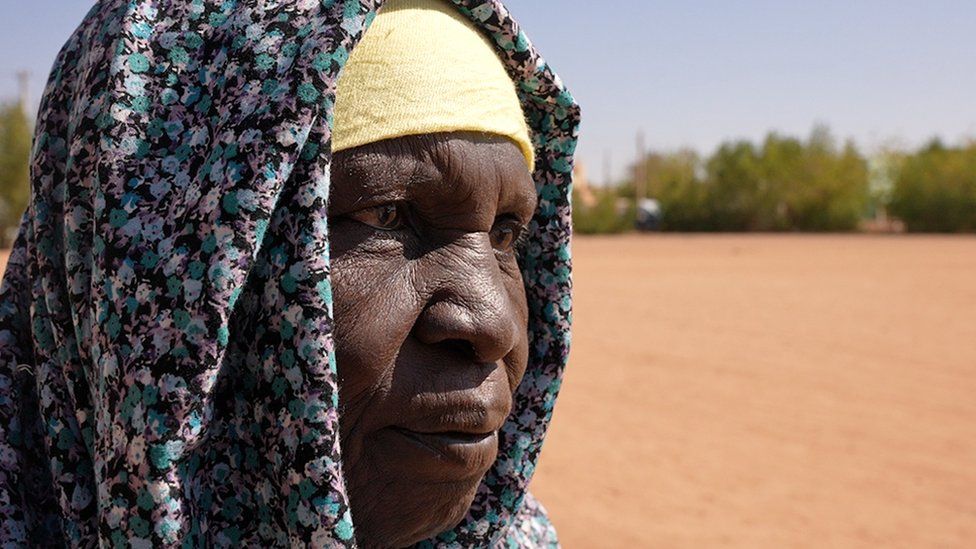
Afaf Muhammad Salem, in her late fifties, was living with her brothers in Khartoum when the war broke out.
She says she moved across the river to Omdurman after they were attacked by RSF fighters, who she says looted their house and shot her brother in the leg.
"They were beating up women and old men and threatening innocent girls," she says.
It is a veiled reference to sexual violence, which is a taboo topic in Sudan.
"Insulting honour does more harm than taking money," she adds.
'A weapon of revenge'
Victims of rape can face a lifetime of stigma and marginalisation from their own families and communities. Many people in Omdurman did not want to discuss the issue.
But more than 1,000km (621 miles) to the west, in the sprawling refugee camps over the border in Chad, the volume of emerging testimonies of sexual violence is forcing a new, grim, level of openness.
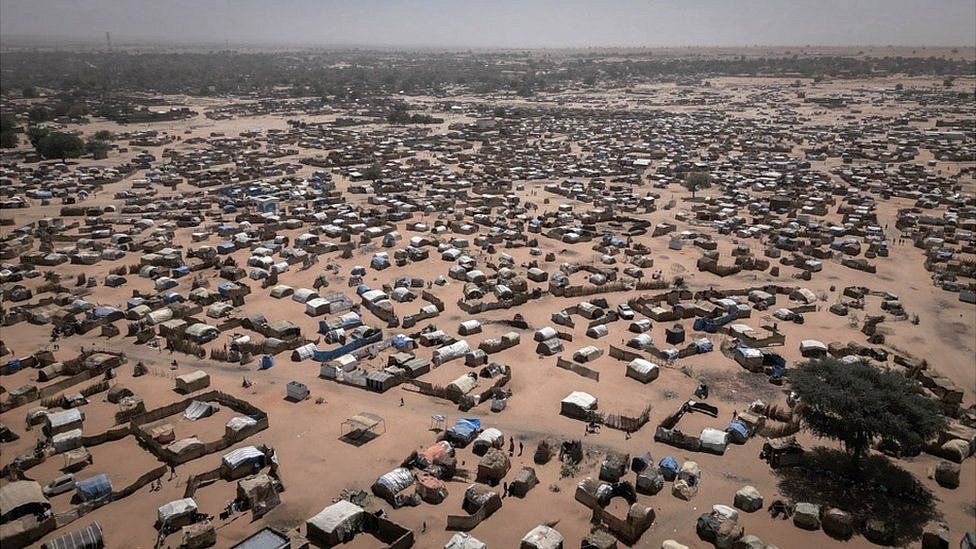
Amina, whose name we have changed to protect her identity, has come to a temporary clinic run by the charity Médecins Sans Frontières, seeking an abortion. She greets us without looking up.
The 19-year-old, who has fled from Darfur in Sudan, only found out she was pregnant the previous day. She desperately hopes her family will never know.
"I'm not married and I was a virgin," Amina says in faltering sentences.
- If you have been affected by any of the issues raised in this story you can visit BBC Action Line.
In November, militiamen caught her, along with her aunt and cousins, as they were fleeing from their hometown of Ardamata to the nearby city of Geneina, she tells us.
"The others escaped but they kept me for a whole day. There were two of them, and one raped me many times before I managed to escape," she says.
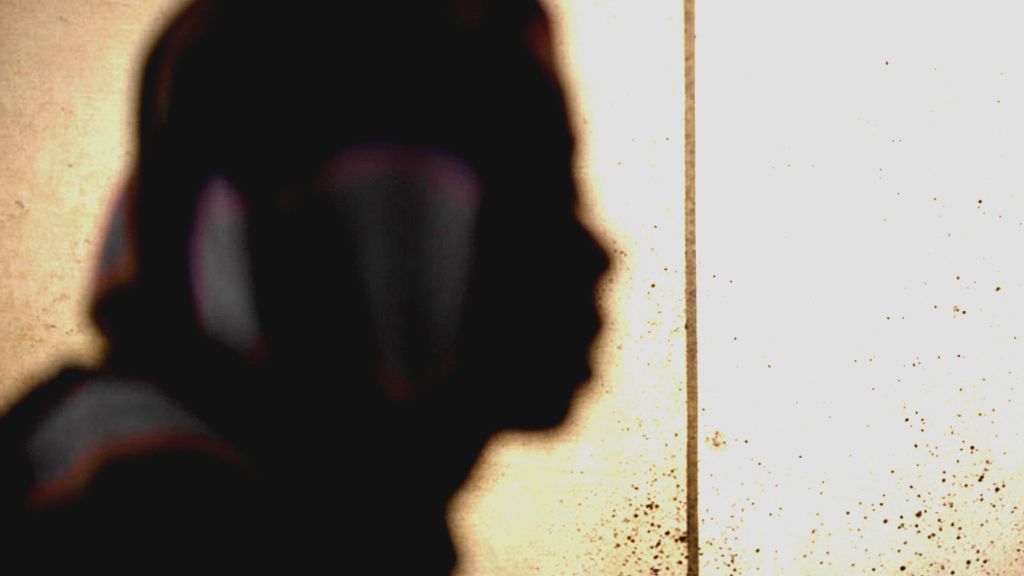
The RSF's expanding domination in Darfur, supported by allied Arab militias, has brought with it a surge in ethnically driven attacks on the black African population, especially the Masalit ethnic group.
Amina's story is just one of many testimonies of attacks against civilians that happened around 4 November when the RSF and its allies seized a Sudanese military garrison in Ardamata.
It follows violence earlier in the year - a recent UN report seen by the BBC says that more than 10,000 people are believed to have been killed in the area since last April.
The UN has documented about 120 victims of conflict-related sexual violence across the country, which it says is "a vast under-representation of the reality".
It says men in RSF uniform and armed men affiliated with the group were reported to be responsible for more than 80% of the attacks. Separately, there have also been some reports of sexual assaults by the Sudanese military.
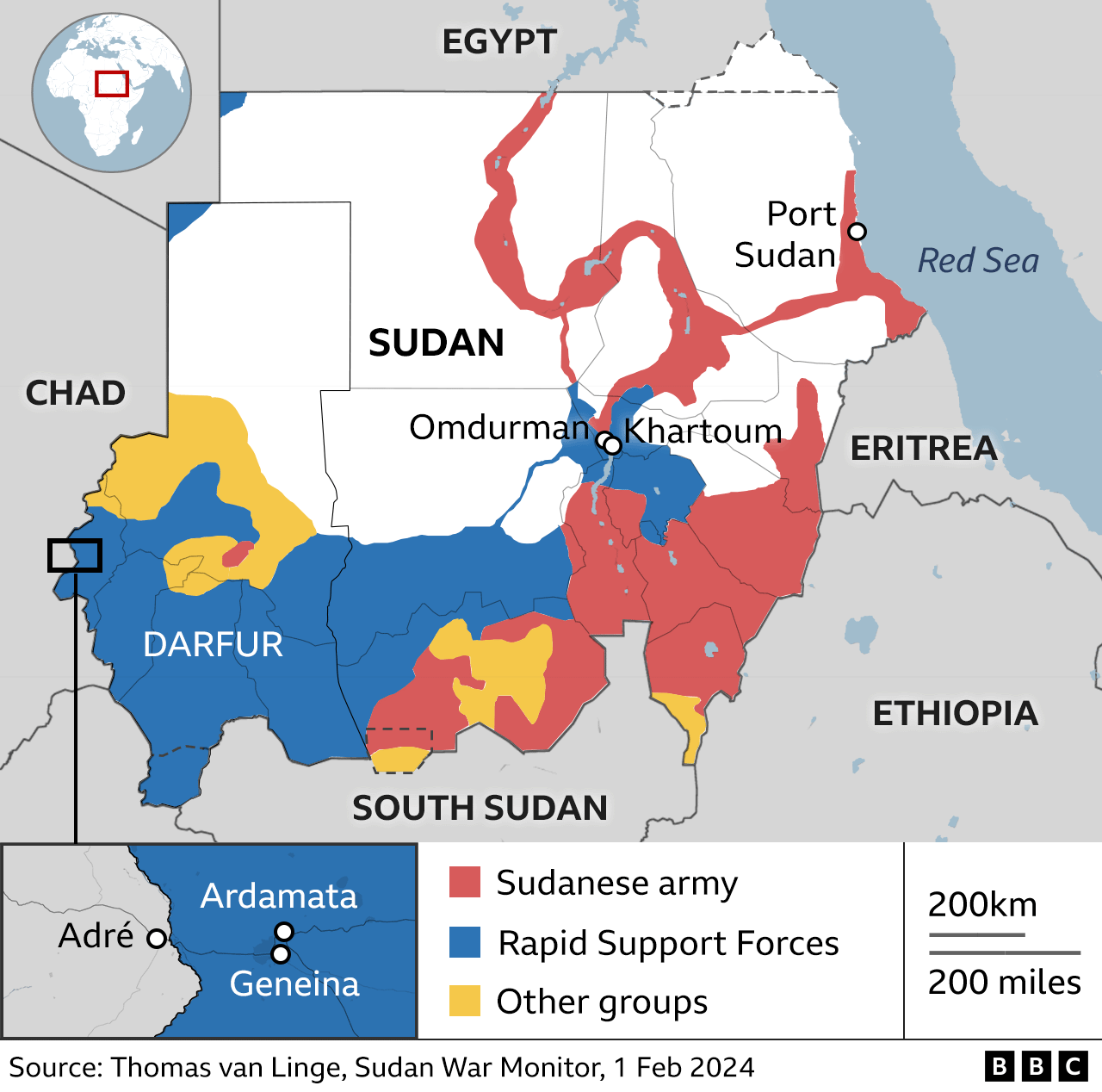
Just outside the same camp, which is in the border town of Adré, about 30 women and girls meet in a hut at midday.
Pink and blue balloons hang from a string above their heads, along with handwritten notes. "Rape is not destiny; it is a practice that can be stopped," one reads.
Tears flow freely as the women speak of their experiences of both physical and sexual violence.
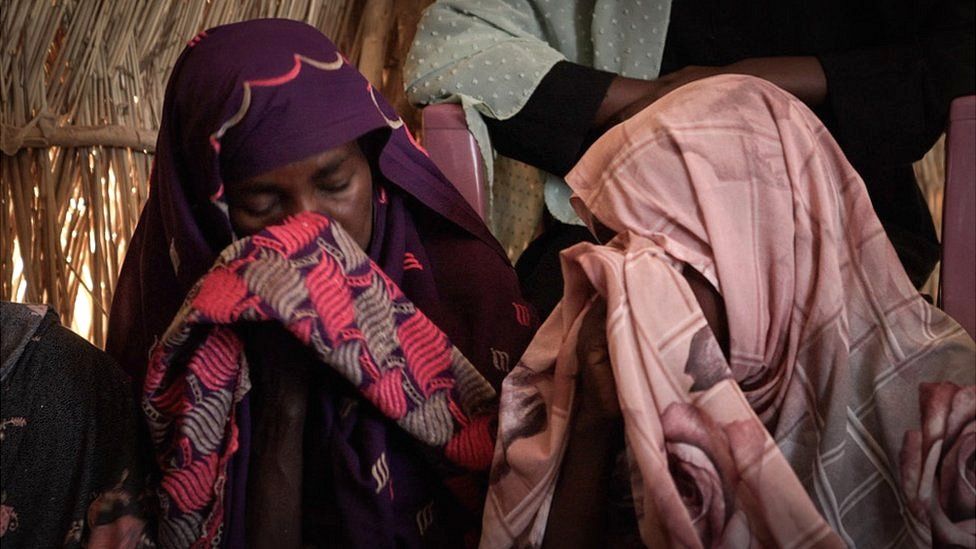
Maryamu - not her real name - says she was raped by armed men wearing the turban-style headdresses typical of Arab fighters in the area, in November in her home in Geneina.
She had difficulty walking afterwards, she says, sobbing as she describes fleeing: "People were running, but we couldn't because my grandmother can't run. I was also bleeding."
Zahra Khamis, a social worker who is a refugee herself, runs the group.
Both Amina and Maryamu are from black African communities, and Ms Khamis says these, particularly the Masalit ethnic group, are being targeted in Darfur.
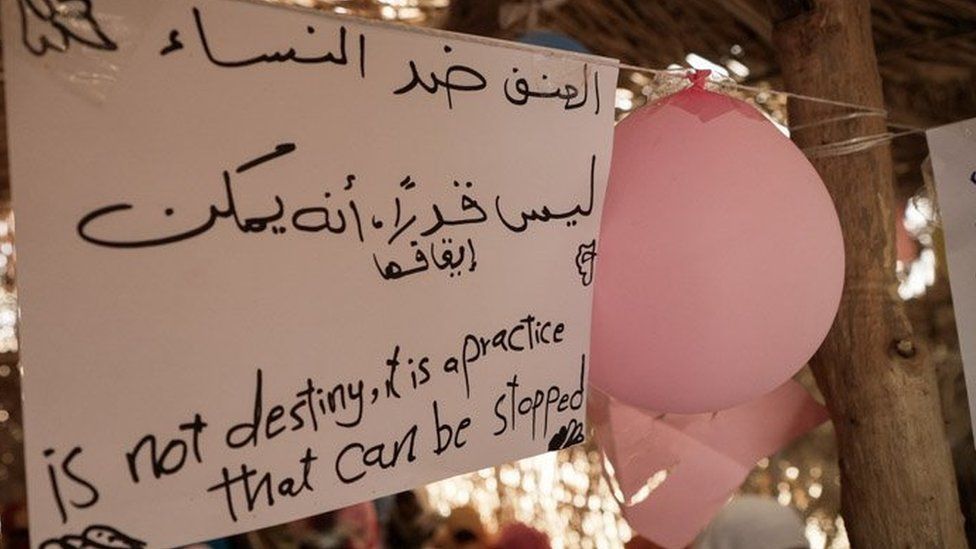
During the war in Darfur 20 years ago, an Arab militia called the Janjaweed - in which the RSF has its roots - was mobilised by former President Omar al-Bashir to crush a rebellion by non-Arab ethnic groups.
The UN says 300,000 people were killed and rape was widely used as a way to terrorise black African communities and force them to flee. Some Janjaweed leaders and Mr Bashir have been indicted by the ICC on charges of genocide and crimes against humanity. They have denied the charges and no-one has been convicted.
Ms Khamis believes rape is being used in this conflict "as a weapon of revenge".
"They are doing this to the women because rape leaves an impact on society and the family," she adds.

More on the conflict in Sudan:

In a rare insight into the attitudes driving violence against women, one RSF member who describes himself as a "field commander" posted a video on social media in November.
"If we rape your daughter or your girl, it's an eye for an eye. This is our country and this is our right and we took it," he says in the clip, which has now been deleted.
In response to the BBC's questions about rapes and other attacks, the RSF said Sudanese military intelligence was "recruiting people to wear RSF clothes and commit crimes against civilians so it can be said that RSF are committing crimes, sexual assault and ethnic cleansing".
"Maybe one or two incidents were committed by RSF fighters and they were held accountable," Omran Abdullah Hassan from the RSF leader's advisory office told the BBC.
Last year. the RSF said it would set up a process to investigate alleged human rights abuses by its forces, but the UN says no details have been given.
'If you're Masalit, they kill you'
In another shelter in the same camp, Ahmat's hands shake as he grasps a phone, watching a video, which has been verified by the BBC, showing five unarmed men lined up on a street in Ardamata in November.
"I'm just going to finish them off," a voice shouts in Sudanese Arabic, before the men are raked with gunfire from an assault rifle at point blank range.
"This is Amir, and this is Abbas...," Ahmat says, a tear rolling down his cheek.
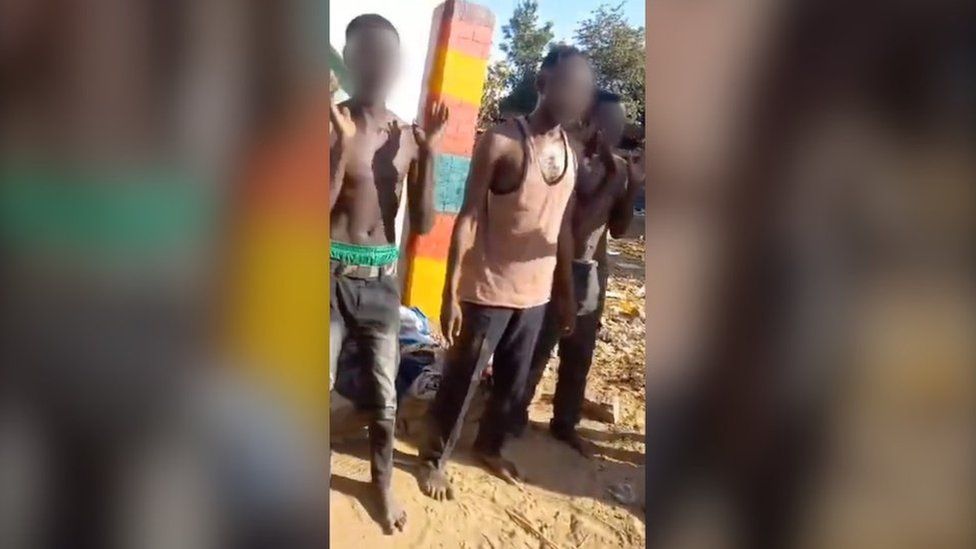
This is the first time the 30-year-old, whose name we have changed, has seen the footage of the moment he was shot. It was filmed, apparently by one of the armed men, on 5 November - the day after the RSF seized the garrison - and posted online.
Ahmat says his cousin Amir and his friend Abbas died instantly, but he and the two others survived.
A large scar on his back marks the exit wound where a bullet ripped through his shoulder. He says he was a teacher before the war and that all five of them were civilians.
"We lay down as if we were dead," he says. "I remember praying. I was thinking it was the end."
Ahmat says he was abducted from near his home by members of the RSF and their allies. The video shows men dressed in the style typical of these forces.
Two other men gave the BBC detailed testimony of being abducted and injured by armed men they believe were linked to the RSF during the same period in Ardamata.
One of them, 55-year-old Yussouf Abdallah, told us he had managed to escape after being held by armed men. He says he saw them kill a mother and her newborn baby.
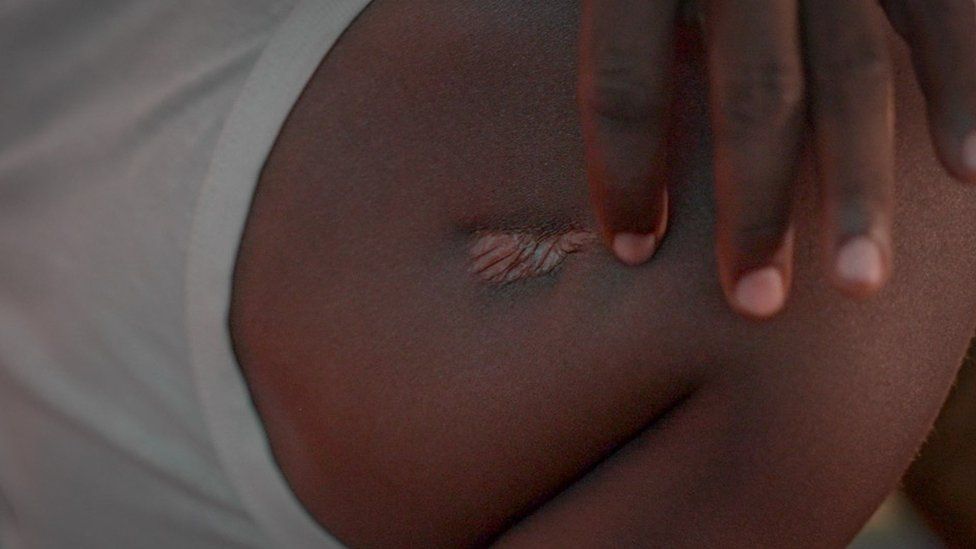
"They asked if we are from the Masalit community and, if you are, they automatically kill you," he added.
Sudan entered a fresh period of instability in 2019, when street protests and a military coup ended the near three-decade rule of Mr Bashir.
A joint military-civilian government was established, but that was overthrown in another coup by the army and RSF in October 2021.
But the two allies fell out over the proposed move towards civilian rule - and how the RSF should be integrated into the regular armed forces.
Last April, when the RSF redeployed its members around the country, the Sudanese army saw the move as a threat, and the violence began, with neither side wanting to give up the lucrative dividends of power.
'On the brink of famine'
Nearly a year on, aid agencies warn of a humanitarian situation spiralling out of control, with the UN's children's agency, Unicef, saying some communities are on the brink of famine.
Three-year-old Manasek is one of hundreds of thousands of children already suffering from severe malnutrition. She does not have the strength to walk and can barely hold her own head up.
Her mother Ikram cradles her in a Unicef hospital in Port Sudan, a city on the Red Sea where thousands of people fleeing the fighting in Khartoum have sought refuge - and to which most government institutions and humanitarian organisations have also relocated.

Sudan: The basics
- Sudan is in north-east Africa and has a history of instability: The military toppled long-time leader Omar al-Bashir in 2019 after mass protests
- It then overthrew a power-sharing government in 2021, putting two men at the helm: The head of the army and his deputy, who is also the head of a paramilitary group called the RSF
- They disagree on how to restore civilian rule to Sudan: The RSF leader claims to represent marginalised groups against the country's elites but his forces were accused of ethnic cleansing

She does not know if Manasek has an underlying illness, and cannot pay for medical investigations to find out.
"We lost our life, we lost our jobs," she says, explaining that her husband has gone to northern Sudan to seek farm work and how food prices have soared out of reach. She bows her head, wiping away tears, unable to say more.
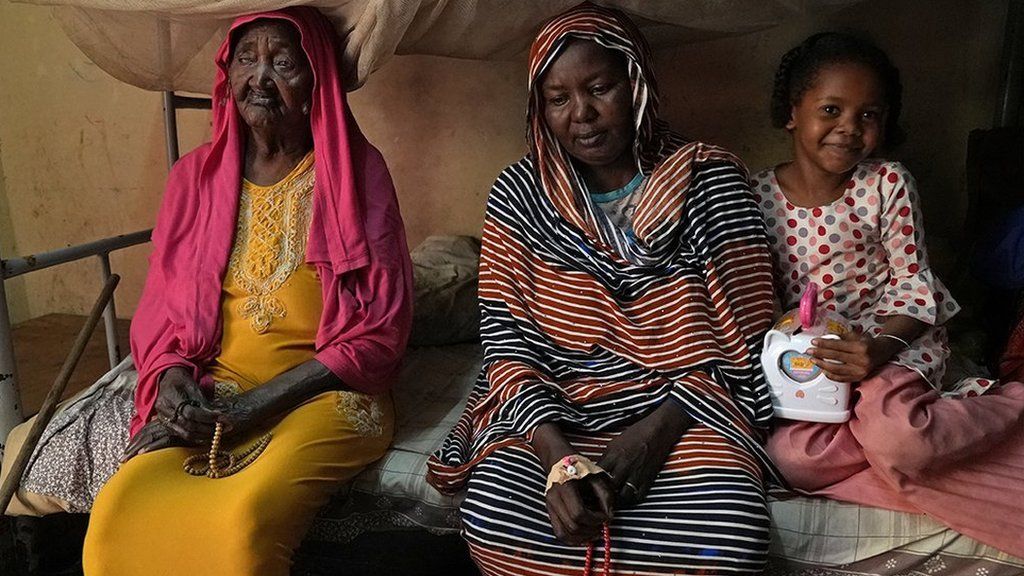
We visit a school in Port Sudan. Classrooms where pupils once learned are now crammed with desperate families.
A stream of sewage flows along the side of the yard, where children play barefoot by piles of rubbish. We are told five people have died of cholera here.
Zubaida Ammar Muhammad, a mother of eight, coughs as she tells us she has leukaemia and has been in pain since April, when her medication ran out. She was unable to get more when the war broke out and the family fled from the Khartoum area.
Her husband volunteered to fight with the Sudanese military, and she has not heard from him for two months. Her mother, grandmother and the three children staying with them can do little but watch her health deteriorate.
In Port Sudan we also meet a group of Coptic Christians who have fled the capital, to escape RSF threats and attacks, and the military's air strikes.
"The air force in Khartoum destroyed us," says one of them, Sarah Elias.
She says an air strike killed her husband, and another hit a neighbour's home, killing nine people, as the military targeted RSF fighters hiding in residential areas and churches.
The US says both sides have committed war crimes, and the RSF and its allied militias have also committed crimes against humanity and ethnic cleansing.
Both sides deny the allegations.
Eleven months into the war, there is little sign of any will on either side to end to the fighting.
Most of those able to leave have fled the country - and as conflict, hunger and disease continue, many people here wonder what will be left for anyone to declare victory over.
Additional reporting by Peter Ball and Mohamed Ibrahim, verification by Peter Mwai
https://news.google.com/rss/articles/CBMiMGh0dHBzOi8vd3d3LmJiYy5jby51ay9uZXdzL3dvcmxkLWFmcmljYS02ODYwNjIwMdIBNGh0dHBzOi8vd3d3LmJiYy5jby51ay9uZXdzL3dvcmxkLWFmcmljYS02ODYwNjIwMS5hbXA?oc=5
2024-03-20 00:02:57Z
CBMiMGh0dHBzOi8vd3d3LmJiYy5jby51ay9uZXdzL3dvcmxkLWFmcmljYS02ODYwNjIwMdIBNGh0dHBzOi8vd3d3LmJiYy5jby51ay9uZXdzL3dvcmxkLWFmcmljYS02ODYwNjIwMS5hbXA
